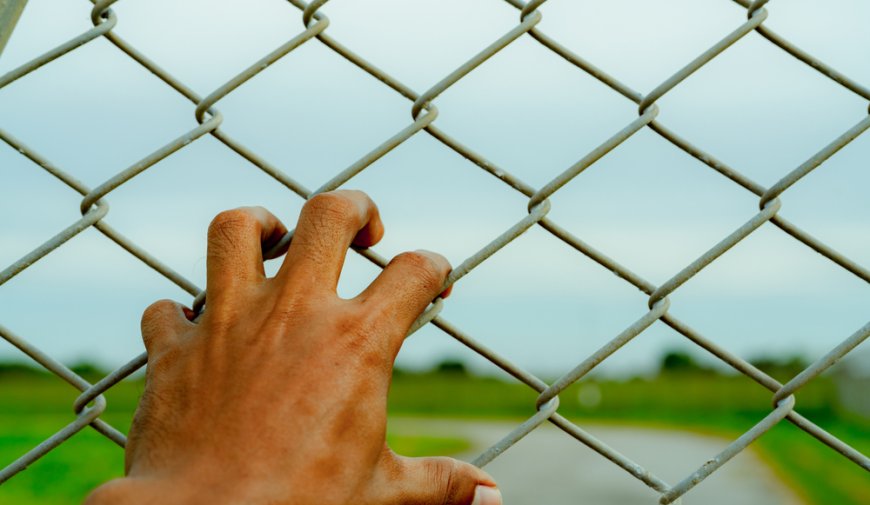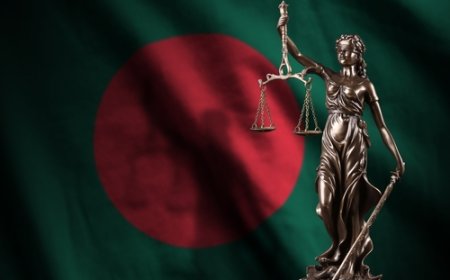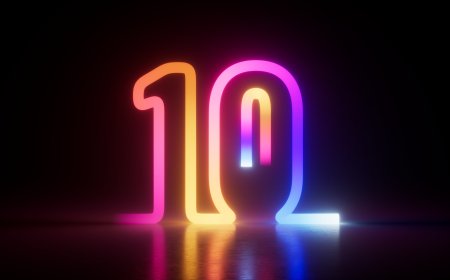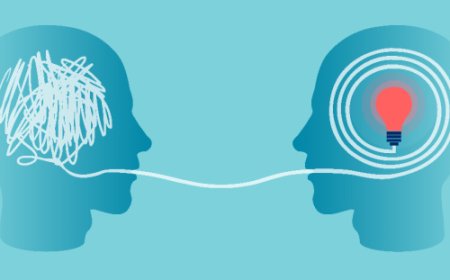The Disguised Democracy of the Global South
Until democracy regains its moral soul -- until citizens can question without fear and leaders can lose power without vengeance -- it will remain a performance, not a principle. And if this performance continues, one morning we will awaken to discover that democracy has quietly turned into its opposite.

Democracy is a word that glitters like magic. It carries the promise of justice, freedom, and equality, as if the mere utterance of the word could wash away corruption, silence tyranny, and end poverty.
Yet, after centuries of human civilization, after revolutions and declarations, ballots and bloodshed, one question remains painfully alive:
Do we truly understand what democracy means?
For many in countries like Bangladesh, India, Pakistan, and across Latin America and Africa, democracy has turned into a ceremony of slogans rather than a system of substance. It begins with speeches, ends with ballots, and lives on as a memory until the next election.
The word is revered, but its essence is lost. Some have tried to give it new names -- “guided democracy,” “basic democracy,” or “democracy of the exploited.” These are not reinventions but disguises, attempts to dress up control as consent.
And yet, despite its disfigurement, democracy remains humanity’s most hopeful experiment.
Abraham Lincoln described it as “government of the people, by the people, for the people.” But what happens when “the people” are reduced to spectators, watching as power circulates among a few?
In many developing countries, democracy has become a performance -- grand in appearance, hollow in purpose. It provides legitimacy to those in power while giving the illusion of choice to those without it.
The first spark of democracy appeared in ancient Athens, where free citizens gathered in public assemblies to make decisions. It was limited, imperfect, and exclusive, but it introduced the revolutionary idea that authority could come from the governed.
Centuries later, Thomas Jefferson carried that flame across the Atlantic. In 1789, he wrote: “How many rights there are which it is unnecessary to surrender to the government, and yet governments of all kinds in all countries are always busy interfering with them.”
For Jefferson, the right to think, to speak, to trade, and to live freely were not favours from rulers but inheritances of human dignity.
Jefferson’s words were written at a time when monarchs were falling and empires were in flames. As US Secretary of State, he watched the French behead their king. As President, he saw Napoleon’s armies crush Europe under their boots and the British navy dominate the seas. In an age of chaos, Jefferson still believed that only democracy could humanize power and make peace possible.
Decades before Jefferson, England’s Bill of Rights of 1689 marked a moral shift in political thought. It asserted that even kings were not above law, establishing the principles of fair elections, parliamentary freedom of speech, and accountable governance. Over time, countries like Switzerland and the early American states embedded these ideals into their constitutions, giving birth to the modern democratic model.
When democracy reached the Indian subcontinent, however, it came not as a gift of the people but as an instrument of the empire. The Government of India Act of 1919 introduced limited elections under British rule, not to empower citizens but to train them for obedience. The Government of India Act of 1935 expanded those powers slightly, leading to provincial elections in 1937. But genuine democracy would not take root until independence came in 1947, and even then, it carried the marks of its colonial parentage.
India declared itself a republic in 1950, enshrining democracy in its constitution. Yet, despite its early optimism, Indian democracy has wrestled with populism, communal tension, and the rise of personality politics. Pakistan, and later Bangladesh, have faced repeated collapses of democratic order through coups, corruption, and constitutional breakdowns.
In much of Latin America and Africa, the story is similar -- where the ballot box co-exists with fear, and where freedom of speech survives only in theory.
What unites these regions is the illusion of democracy. The form exists -- there are elections, constitutions, and parliaments -- but the spirit has been compromised.
Fareed Zakaria once warned of “illiberal democracy,” a condition where governments are elected but liberties are suppressed. In such places, people can vote but cannot question. They can choose their rulers but not their destiny.
Amartya Sen observed that “democracy is not just about ballots but about dialogue.” Yet in countries like Bangladesh, India, and many parts of Africa and Latin America, that dialogue has withered. Power speaks, the public listens, and silence becomes a form of survival. Democracy, once meant to empower, has been weaponized by the powerful to preserve themselves.
Plato cautioned that “the price of apathy toward public affairs is to be ruled by evil men.” The tragedy of many developing countries lies in this apathy, born not from indifference but from despair. When people lose faith in their votes, democracy becomes an empty ritual. Polling stations are set up with precision, observers take notes, results are announced -- but the outcome is known long before the ballots are counted.
Alexis de Tocqueville wrote that democracy’s real strength lies not in elections but in the moral habits of citizens. It thrives when people believe they share responsibility for the public good. Without that moral foundation, democracy turns into populism, where charisma replaces character, and mass hysteria replaces moral reasoning. The ballot, once a symbol of equality, becomes a weapon of manipulation.
John Stuart Mill warned that “the worth of a state in the long run is the worth of the individuals composing it.” A democracy filled with fearful and cynical citizens cannot remain free. Across much of the developing world, fear has replaced participation. The fear of losing power grips rulers; the fear of speaking grips citizens. In this suffocating exchange, the democratic ideal collapses into authoritarian reality.
Still, democracy remains the only system that allows nations to correct themselves. Winston Churchill famously said: “Democracy is the worst form of government except for all those other forms that have been tried.”
For countries like Bangladesh, India, Pakistan, and those of Latin America and Africa, the challenge is not to find an alternative to democracy, but to rescue its integrity.
The revival of democracy cannot be achieved through slogans or foreign lectures. It must grow from within, through moral courage, civic education, and a culture of questioning. Citizens must reclaim their role not as subjects but as participants. Philosopher Karl Popper said the true test of democracy is not who governs but whether the people can peacefully remove those who do. Many developing nations still fail this simplest of democratic tests.
Jefferson’s dream was not about elections alone; it was about enlightenment. He wanted a society where people could think freely and speak fearlessly. The tragedy of the modern Global South is that it inherited his institutions but not his ideals. It built parliaments but forgot principles, adopted ballots but ignored conscience.
Until democracy regains its moral soul -- until citizens can question without fear and leaders can lose power without vengeance -- it will remain a performance, not a principle. And if this performance continues, one morning the people of these nations will awaken to discover that democracy has quietly turned into its opposite.
It will not have died by revolution or coup, but by gradual suffocation under the weight of hypocrisy and fear. And then, the ballot will remain, but the voice will not.
“The spirit of democracy cannot be imposed from without. It has to come from within.” -- Mahatma Gandhi
H. M. Nazmul Alam is an Academic, Journalist, and Political Analyst based in Dhaka, Bangladesh. Currently he is teaching at IUBAT. He can be reached at [email protected].
What's Your Reaction?













































































